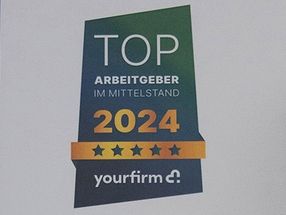EY Future Workplace Index: 58% of business leaders will invest in real estate decision-making
40% of copmpanies have either started using a four-day workweek or are in the process of implementing one
The US economy is undeniably cooling, and a recession is anticipated in 2023. However, regardless of investment decisions, the macroeconomic outlook is forcing leaders to scrutinize their office portfolios from a new perspective. Amid the current inflation and interest rate environment, the Index found that just 33% of US C-suite business leaders will downsize their investment in commercial real estate, while 58% say they will invest in commercial real estate, which could include enhancing or expanding the real estate footprint.

Computer generated picture
“The economic downturn will force leaders to make important decisions regarding their real estate portfolios — from investments, to space optimization, to workforce models,” says Mark Grinis, EY Americas Real Estate, Hospitality & Construction Leader. “Employers are beginning to understand that they need to earn the commute time of their employees, and many are investing in the ‘office of the future’ to achieve this.”
The latest EY Future Workplace Index also reveals the following:
More than 70% of employees are working from home at least two to three days a week.
This is up from last year’s Index, which found that only about 42% of employers were using a hybrid approach. New and complicated working patterns have a major effect on a company’s real estate strategy, including the amount of office space required and the cost of using that space. Almost 60% are either using, or will soon be using, reservation systems for space utilization and/or occupancy tracking.
Of survey respondents, 64% are either leasing or considering leasing suburban office space since the pandemic.
Employers have responded to the deurbanization of the workforce seen during the pandemic by investing in hyperlocal offices to promote a return to the office. The physical office is still a crucial component to a company’s ability to thrive now and in the future, and employers believe the connection employees experience within the physical office is worth the investment. In addition to predictable flexibility, companies are also investing in other avenues, such as in-person events (50%), providing meals (45%), reimbursement for commuting costs (38%) and childcare support programs (33%), to encourage employees to come into the office.
Sixty-four percent of executives believe flexible working options motivate employees.
A mix of flexibility and technology in the workplace is top priority. Most are looking at the use of health and wellbeing management apps and other hybrid work technologies, such as digital and virtual collaboration resources, to optimize the workplace. For example, 44% of company leadership have activated or are beginning to invest in the metaverse for social interaction, training and/or recruiting purposes, and 62% have activated or are beginning to invest in health and safety innovations and monitoring, such as indoor air quality, touchless offices, etc.
Of the companies surveyed, 40% have either started using a four-day workweek or are in the process of implementing one.
A prolonged, tight labor market and changing work patterns have employers doing all they can to attract and retain their workforce, and many are adjusting the role of the office to stay competitive. A company’s overall working model must accommodate hybrid working or risk employees searching for more flexible options. The Index found that 69% of company leadership has implemented or is in the process of implementing hybrid work technologies (video collaboration platforms, virtual whiteboards, etc.) to meet employees where they are.
“Data is paramount to understanding your workforce and creating the best space for a new era of work,” says Francisco J. Acoba, Principal, EY Americas Strategy and Transactions; Co-lead – Corporate Real Estate Consulting and Technology. “Data-driven insights that uncover employees’ work habits will shape how executives design and approach the workplace moving forward.”
Most read news
Organizations
Other news from the department career

Get the food & beverage industry in your inbox
By submitting this form you agree that LUMITOS AG will send you the newsletter(s) selected above by email. Your data will not be passed on to third parties. Your data will be stored and processed in accordance with our data protection regulations. LUMITOS may contact you by email for the purpose of advertising or market and opinion surveys. You can revoke your consent at any time without giving reasons to LUMITOS AG, Ernst-Augustin-Str. 2, 12489 Berlin, Germany or by e-mail at revoke@lumitos.com with effect for the future. In addition, each email contains a link to unsubscribe from the corresponding newsletter.





























































